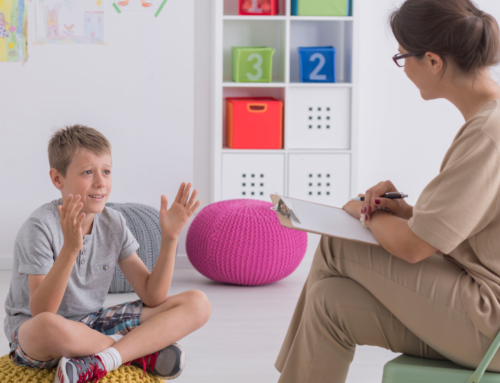Christmas time is here! This means family time, seeing loved ones, great food, time away from school and lots of down time. With all these great things also comes many challenges. This time period can be tricky to navigate for families. In this blog, we want to share some of our top tips, strategies, and some activity ideas to support you and your family through the upcoming Christmas holidays. These strategies aim to reduce stress for both parents and children so that you can both enjoy your time off with each other during this busy and festive time.
Tip 1: Prepare ahead of time
Leading up to the Christmas period, start to plan ahead of what needs to be done (e.g., sorting presents) before the holidays start and what are some things you may want to do as a family over the Christmas break. One way to reduce stress can be to plan ahead when you can, to try and reduce the stress when it comes to the hustle bustle of the Christmas break.
When you can, give your child a heads up about any changes or activities they may be doing in the holidays. Many children, especially those who enjoy routine, may find the Christmas period daunting or struggle to adapt to the changes of routine. By having a plan in place, you can start to prepare your child for these changes and give them a heads up of what they will be doing instead of their regular day-to-day activities. It may be helpful to acknowledge that these changes can be tricky and that plans sometimes do change, as this shows support to your child and can help them feel regulated. You may want to use a daily visual schedule while you are at home to further support your child to settle into the new routine change, so they can see what is expected for the day. Use images or pictures of activities/places to introduce the change (you can either print pictures or show them on your phone) and talk about what they can expect in the new routine.
By planning ahead, it can help to reduce stress levels and support everyone to feel more prepared, so that you can enjoy this time together over the Christmas period.
Tip 2: Focus on enjoying your time together
Although there are many exciting things about Christmas and the school holidays, the main thing most families want is to enjoy some quality time with loved ones. The past few years have been extremely tough for everyone, and it is nice that we can finally enjoy time with friends and family. For some, Christmas may be a tricky time dealing with grief, loss or stress. It is extremely important that you look after yourself during this time.
During this busy time, remember to try not to stress over the small things. Not everything has to go exactly perfectly or as planned. The main focus is to try and enjoy your time with your loved ones.
Tip 3: Set boundaries with your loved ones
While a major part of the festive season for many of us is spending time celebrating with family and friends, it is important that you and your child have adequate time to rest and recharge. Often, celebrations at Christmas are filled with big emotions such as excitement and happiness, but with high levels of excitement can come fatigue and overstimulation. It may be helpful to set boundaries and advocate for your self and your child, to minimise any distress and upset that make occur when your little one is overstimulated. This may involve educating members of your extended family or social circle about your child’s interaction styles, not forcing physical contact or social interactions, and setting up a safe space ahead of time (e.g., a quiet room or place outside) that your child is aware they can use as needed or if they begin feeling overwhelmed. Setting boundaries with others, particularly our loved ones can sometimes be tricky, and it is often challenging to juggle our needs with our sense of obligation for what we ‘should’ do at Christmas time, letting others down or managing the conflicting needs of multiple people. Some quick tips for setting healthy boundaries during the festive season include:
self and your child, to minimise any distress and upset that make occur when your little one is overstimulated. This may involve educating members of your extended family or social circle about your child’s interaction styles, not forcing physical contact or social interactions, and setting up a safe space ahead of time (e.g., a quiet room or place outside) that your child is aware they can use as needed or if they begin feeling overwhelmed. Setting boundaries with others, particularly our loved ones can sometimes be tricky, and it is often challenging to juggle our needs with our sense of obligation for what we ‘should’ do at Christmas time, letting others down or managing the conflicting needs of multiple people. Some quick tips for setting healthy boundaries during the festive season include:
- Being as clear and as straightforward as possible when discussing your needs. Maintain a calm demeanour, open body posture and neutral tone of voice.
- State your need or request directly in terms of what you’d like, rather than what you don’t want or like
- Openly acknowledge the desires or opinions of others to demonstrate you are considering their viewpoint
- Acknowledge any discomfort or difficult emotions that arise as a result of setting boundaries or saying no to things. Be gentle yourself and try to remember the benefit for you and your family to maintain your wellbeing and enjoyment of this busy time.
Tip 4: Spend time outside
There are many benefits to spending time in the great outdoors, including regulating our mood and energy levels (American Psychological Association). Therefore, getting outdoors with your family doing an enjoyable activity, going to the beach, or going on a walk could be the perfect reset between social events and preparations for the festive season.
Tip 5: Self-care
Catch your breath. We are only human, we cannot do everything and it can sometimes feel like we need more hours in the day. It is so important as parents to make sure you are also looking after yourselves, showing self-compassion for your efforts, and not being too hard on yourself. When the kids are home, try to take a minute to yourself by going outdoors, listening to music, sitting down to eat/drink or reading a book. The more relaxed and looked after you are, the better you will be able to handle any stressors that do come your way. Also ensuring that as best you can, that regular sleep schedules are maintained and that your child is eating a balanced diet alongside their Christmas treats will help to maintain a sense of physical wellbeing which is tied to not only stablising our energy levels, but our emotional wellbeing.
Activity ideas to keep busy
Nature walks – Go outside and explore nature. You could even make a checklist of things to find or have a game of eye-spy along the way.
Simple mindfulness activities – Often due to the business and stimulation of the Christmas season, we are often left feeling as though it has flown by in a flash. By engaging with mindfulness and deep breathing exercises throughout the silly season, you and your child will be able to slow down, engage in the present moment and really enjoy the time spent with loved  ones. Download the Smiling Mind™ app free on the App Store and Google Play for short, engaging, kid friendly meditations to take that pause between activities or events or follow the link for a short 5 senses grounding exercise suitable for all ages https://copingskillsforkids.com/blog/2016/4/27/coping-skill-spotlight-5-4-3-2-1-grounding-technique
ones. Download the Smiling Mind™ app free on the App Store and Google Play for short, engaging, kid friendly meditations to take that pause between activities or events or follow the link for a short 5 senses grounding exercise suitable for all ages https://copingskillsforkids.com/blog/2016/4/27/coping-skill-spotlight-5-4-3-2-1-grounding-technique
Sensory Christmas crafts – Craft can keep kids busy for hours. Click the link to see some fun Christmas themed sensory crafts that can be easily done at home. https://www.disabilitysupportguide.com.au/talking-disability/8-sensory-christmas-crafts-for-kids
Use of boxes/scraps to get creative – Keep all the boxes and scraps from Christmas to play with. Loose parts and scraps are a fantastic way to develop your child’s creativity and play skills. What can you make? A car, a rocket, a tent or even a sleigh! The possibilities are endless.
Bake Christmas food – Have your kids involved in Christmas cooking! This is a great way to keep your kids busy, and they get the reward of eating their hard work.
Conclusion
Despite all the business and chaos that often arises during the silly season, the most important thing is that you and your family enjoy a restful break filled with quality time and memories as we reflect on the year that was, and the excitement that the start of a new year brings.
Get in touch
If you have any concerns or questions about therapy, get in touch with us for a chat about your child’s situation and how we may be able to help.
References
Havlik, K. Visual Schedules: A Practical Guide for Families. https://ed-psych.utah.edu/school-psych/_resources/documents/grants/autism-training-grant/Visual-Schedules-Practical-Guide-for-Families.pdf
Meadan, H., Ostrosky, M. M., Triplett, B., Michna, A., & Fettig, A. (2011). Using Visual Supports with Young Children with Autism Spectrum Disorder. TEACHING Exceptional Children, 43(6), 28–35. https://doi.org/10.1177/004005991104300603
American Psychological Association. (2020, April 1). Nurtured by nature. Monitor on Psychology, 51(3). https://www.apa.org/monitor/2020/04/nurtured-nature











